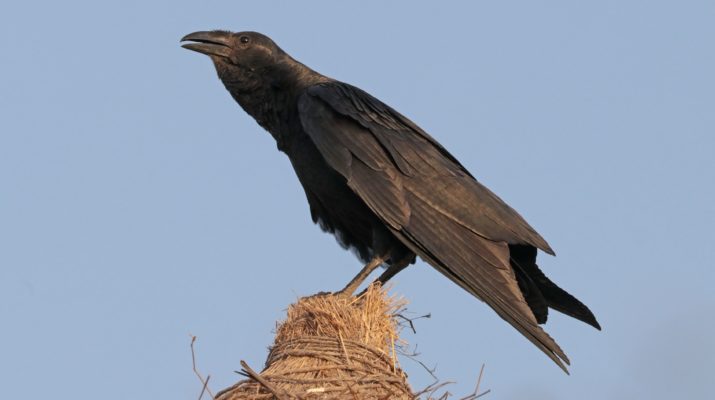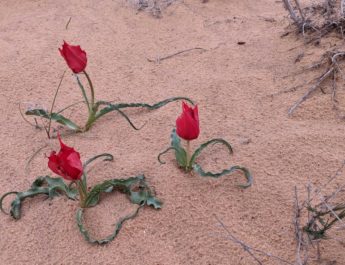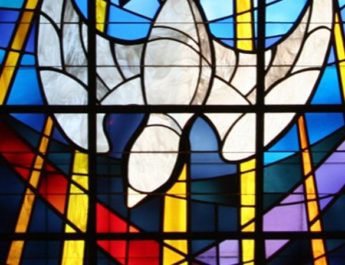Psalm 147:1-11
Narrative Lectionary 427
1 PraiseA the Lord!B
How goodC it is to sing praisesD to our God;E
A “praise” = halal. This is to be clear – it originally referred to a sound, then a color. It was to shine and then make a show or boast then to rave. In a causative sense it came to mean celebrate, give glory, sing praise, or be worth of praise. Because of the celebratory nature of the word, it could also mean to give in marriage. This is where Hallelujah comes from.
B “Lord” = Yah. From YHVH (proper name of the God of Israel; God, Lord; the self-existent or eternal one); from havah (to become) or hayah (to be, become, happen)}. This is Lord or God – a shortened form of God’s most holy name.
C “good” = tob. From tob (to be pleasing, to be good). This is good, beautiful, pleasant, agreeable, bountiful, at ease. This word is used for goodness as a concept, a good thing, a good person. This can refer to prosperity and welfare as well as joy, kindness, sweetness, and graciousness. So, this is ethically good, but also enjoyably good.
D “sing praises” = zamar. Perhaps from zamar (to trim or prune). This is making music. It is used specially of music to worship God. So, music with singing, singing praise, or singing psalms.
E “God” = Elohim.
for he is gracious,F and a song of praiseG is fitting.H
F “gracious” = na’iym. 13x in OT. From na’em (to be pleasant or lovely; to surpass in beauty; to be delightful in a literal or figurative sense). This is sweet, lovely, or delightful.
G “song of praise” = tehillah. Related to “praise” in v1. From halal (see note A above). This is praise or a song of praise. It is to offer God a hymn, to boast in God. This shares a root with “hallelujah.”
H “fitting” = naveh. 10x in OT. From naah (to be at home and so pleasant, beautiful) or naveh (home, place where shepherd or sheep live; at home implies a lovely place or a place of satisfaction); from navah (home, beautify, praise). This is beautiful, becoming, fitting, worthy of praise.
2 The LordI builds upJ Jerusalem;K
he gathersL the outcastsM of Israel.N
I “Lord” = YHVH. Related to “Lord” in v1. See note B above.
J “builds up” = banah. This is to build, make, set up, restore, repair, or obtain children. It is to build literally or figuratively.
K “Jerusalem” = Yerushalaim. From yarah (to throw, shoot, be stunned; to flow as water so figuratively to instruct or teach) + shalam (to make amends, to be complete or sound). This is Jerusalem, dwelling of peace.
L “gathers” = kanas. 11x in OT. This is to gather, assemble, enfold.
M “outcasts” = dachah. 11x in OT. This is to push down, drive, thrust, totter, trip, or chase. It can also mean to overthrow or refer to an outcast as one has been pushed down/overthrown.
N “Israel” = Yisrael. Related to “God” in v1. From sarah (to persist, exert oneself, contend, persevere, wrestle, prevail) + el (see note E above). This is Israel, meaning God strives or one who strives with God; new name for Jacob and for his offspring. This refers to the people and to the land.
3 He healsO the brokenhearted,P
and binds upQ their wounds.R
O “heals” = rapha. Properly, this is to repair by stitching – figuratively this means to heal or cure. It can also mean to make whole.
P “brokenhearted” = shabar + leb. Shabar is break, collapse, destroy, break in pieces, tear. It is bursting in a literal or figurative sense. Leb may be related to labab (to encourage; properly, to be encased as with fat; used in a good sense, this means to transport someone with love; used in a bad sense, it can mean to dull one’s senses). This is the heart, courage, one’s inner self, the mind, or the will. Heart is only used in a figurative sense in the Old and New Testaments.
Q “binds up” = chabash. This is to wrap tightly or bind, to bandage, or heal. It can be to saddle an animal or wrap a turban. Figuratively, it can mean to stop or to govern.
R “wounds” = atstsebeth. 5x in OT. From atsab (to hurt, grieve, displease; to carve, make, worry). This is an injury, sorrow, trouble. It can also refer to an idol.
4 He determinesS the numberT of the stars;U
he givesV to allW of them their names.X
S “determines” = manah. To weigh out, reckon, count, number, set, tell. By implication, it is allotting or providing something officially.
T “number” = mispar. From the same as sepher (writing itself or something that is written like a document, book, letter, evidence, bill, scroll, or register); from saphar (to tally or record something; to enumerate, recount, number, celebrate, or declare). This is a number, whether definite or symbolic – could be innumerable, few, abundance. It can also be a tally or account – or a narration.
U “stars” = kokab. Perhaps from the same as kavah (to prick, blister, burn, scorch). This is a star as shining, stargaze. Figuratively, can mean prince.
V “gives” = qara. This is to call or call out – to call someone by name. Also used more broadly for calling forth.
W “all” = kol. From kalal (to complete). This is all or every.
X “names” = shem. May be from sum (to put, place, set). This is name, fame, renown. A name was thought to indicate something essential about a person – something about their individuality. So, this word can also mean honor, authority, or character.
5 GreatY is our Lord,Z and abundantAA in power;BB
his understandingCC is beyond measure.DD
Y “great” = gadol. From gadal (to grow up, become great, become wealthy – to advance. The root meaning may be to twist in the sense of the process of growing). This is great, high, bigger, noble, old, marvelous. It can also refer to someone who is powerful or distinguished.
Z “Lord” = adon. From a root that means ruling or being sovereign. This is lord, master, or owner.
AA “abundant” = rab. From rabab (increasing in any aspect whether quantity, authority, size, quality, greatness, etc.). This is abundance, many, elder, exceedingly, great. It refers to abundance of amount, rank, or status.
BB “power” = koach. Root may mean to be firm. This is power, strength, force. It can be literal or figurative, positive or negative. It can also mean capacity or means – what something produces. Additionally, it could refer to some kind of small reptile.
CC “understanding” = tebunah. From bin (to discern, consider, attend to; distinguishing things in one’s mind or, more generally, to understand). This is understanding, discernment, discretion, intelligence, skill, fruit, an argument.
DD “measure” = mispar. Same as “number” in v4. See note T above.
6 The LordEE lifts upFF the downtrodden;GG
he castsHH the wickedII to the ground.JJ
EE “Lord” = YHVH. Same as “Lord” in v2. See note I above.
FF “lifts up” = ud. This is to repeat, return, do again. This implies testifying something since that is a repetition. It can also mean to charge, admonish, protest, relieve, restore, or lift up.
GG “downtrodden” = anav. From anah (to be bowed down; can refer to a sense of humility or to a sense of being browbeaten, oppressed, afflicted, or depressed; literal or figurative – depressed in mood or circumstance). This is poor, needy, afflicted as well as humble or meek.
HH “casts” = shephel. This is to be low, cast down, sink, humble, humiliate.
II “wicked” = rasha. This is to be wicked, guilty, make trouble, do wrong. It can also be condemn, guilty, inflict punishment. This verb implies disturbing or violating.
JJ “ground” = erets. Root may mean to be firm. This is earth, ground, field land, or country.
7 SingKK to the LordLL with thanksgiving;MM
make melodyNN to our God on the lyre.OO
KK “sing” = anah. This is answer, respond, announce, sing, shout, or testify. It means to pay attention, which implies responding and, by extension, starting to talk. Used in a specific sense for singing, shouting, testifying, etc.
LL “Lord” = YHVH. Same as “Lord” in v2. See note I above.
MM “thanksgiving” = todah. From yadah (to throw one’s hands into the air in a gesture of praise, to give thanks, or make a confession); from yad (hand, ability, power; hand in a literal sense; what one can do or the means by which one does it). This is properly extending one’s hand, which implies affirmation and adoration. It can be a song of thanksgiving, a choir of thanksgiving, confession, or praise. It can also be a thank offering.
NN “make melody” = zamar. Same as “sing praises” in v1. See note D above.
OO “lyre” = kinnor. Root may be to twang. This is a lyre or harp.
8 He coversPP the heavensQQ with clouds,RR
preparesSS rain for the earth,TT
makes grassUU growVV on the hills.WW
PP “covers” = kasah. This is to cover, conceal, overwhelm. It is to cover as clothes do or to hide a secret.
QQ “heavens” = shamayim. Root may mean being lofty. This is sky, the air, or heaven. It is in a dual noun form so this might refer to the part of the sky where the clouds move on the one hand and the part beyond that where the sun, moon, and stars are on the other hand.
RR “clouds” = ab. Perhaps from uwb (to be a think or dark cloud, a cloud covering). This is a dark or thick cloud that can envelope in darkness. It can also refer to a copse or to clay.
SS “prepares” = kun. Properly, this means in a perpendicular position. So, it is set up in a literal sense – establish, fix, fasten, prepare. In a figurative sense, it is certainty, to be firm, faithfulness, render sure or prosperous.
TT “earth” = erets. Same as “ground” in v6. See note JJ above.
UU “grass” = chatsir. Perhaps from the same as chatsir (village, settlement); from chatser (enclosure or court – a yard that is fenced in. It could also be a village or hamlet that is walled in); from chatsar (to blow a trumpet, trumpeter, to surround); from chatsotsrah (trumpet). This is grass, plant, hay, leeks.
VV “grow” = tsamach. This is to sprout, grow, or spring up – literal or figurative.
WW “hills” = har. From harar (hill or mountain). This is mountain, hill, hilly region.
9 He givesXX to the animalsYY their food,ZZ
and to the youngAAA ravensBBB when they cry.CCC
XX “gives” = natan. This is to give, put, set, offer. It is to give literally or figuratively.
YY “animals” = behemah. This is animal or cattle. It is often used of large quadrupeds.
ZZ “food” = lechem. From lacham (to eat, feed on). This is bread, food, loaf. It can refer to food more generally for people or for animals.
AAA “young” = ben. Related to “builds up” in v2. From banah (see note J above). This is son, age, child. It is son in a literal or figurative sense.
BBB “ravens” = oreb. 10x in OT. Perhaps from arab (to grow dark, become gloomy); from ereb (evening, night, twilight) or from arab (to bargain, barter, give or take in pledge; to braid or intermingle). This is a raven.
CCC “cry” = qara. Same as “gives” in v4. See note V above.
10 His delight isDDD not in the strengthEEE of the horse,FFF
nor his pleasureGGG in the speedHHH of a runner;III
DDD “delight is” = chaphets. Properly, this means inclined towards or bending to. Figuratively, it means to desire, delight in, or be pleased with.
EEE “strength” = geburah. From gabar (to be strong or mighty; to prevail or be insolent). This is force in a literal or figurative sense. So, it could be strength, power, courage, triumph, victory, or mastery.
FFF “horse” = sus. Root may mean to skip as in jump for joy. This is a crane or a swift bird. It is also a horse as leaping.
GGG “pleasure” = ratsah. This is to be pleased with, delight, take pleasure in, or accept with favor. It can mean to approve or consent regarding something. It can also be used specifically of satisfying debts or being pardoned.
HHH “speed” = shoq. 19x in OT. From shuq (to overflow, run after). This is a lower leg or thigh. It can also refer to a shoulder.
III “runner” = ish. Perhaps from enosh (human, humankind, mortal); from anash (to be weak, sick, or frail). This is man, husband, another, or humankind.
11 but the LordJJJ takes pleasure in those who fearKKK him,
in those who hopeLLL in his steadfast love.MMM
JJJ “Lord” = YHVH. Same as “Lord” in v2. See note I above.
KKK “fear” = yare. From the same as yare (to fear, be afraid, dreadful; also fearful reverence – to fear in a moral sense is to say to revere, respect). This is fearful or morally reverent.
LLL “hope” = yachal. This is to wait, which implies patience, hope, and trust. It can also be pained waiting.
MMM “steadfast love” = chesed. From chasad (being good, kind, merciful; may mean bowing one’s neck as is done in the presence of an equal for courtesy’s sake; so, if one in a superior position is treating you like an equal, that is what is captured here). This is favor, goodness, kindness, loving kindness, pity, reproach, or a good deed. When done by God to humanity, this is mercy/loving kindness. When done by humanity to God, it is piety.
Image credit: “Fan-tailed Raven” at Awash National Park in Ethiopia, 2017.




